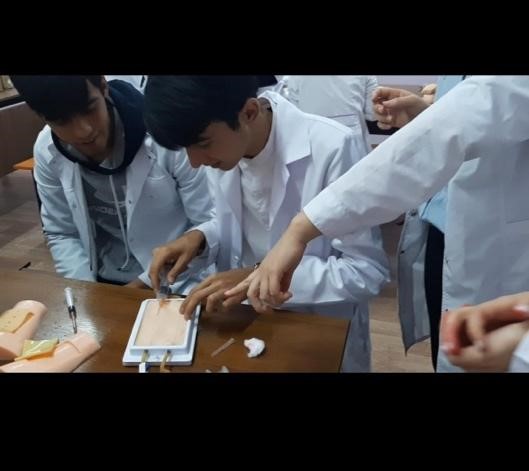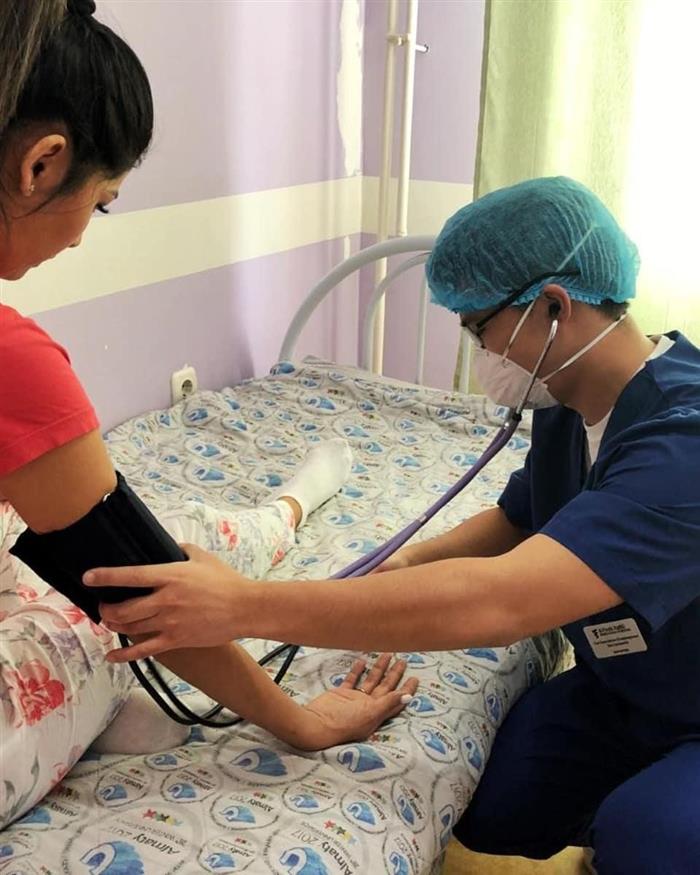General medicine
|
В086 General medicine
|
||
|
|
Description of the educational program |
The educational program is based on a competency-based approach. The final learning outcomes are formulated in accordance with the recommendations of the Accreditation Council for Graduate Medical Education (ACGME) and the standards of the World Federation of Medical Education - WFME (World Federation of Medical Education) - Global Standards for Quality Improvement in Medical Education. The teaching strategy is based on the use of active teaching methods, clinical teaching at the University Clinic and other clinical sites, project-based teaching, and creative assignments. The use of active teaching methods made it possible to completely rebuild the curriculum according to a modular principle with integrated teaching aimed at the practical application of knowledge and effective clinical training. An assessment system is provided with an increase in the proportion of the practical component from course to course using the most valid methods according to the final results of each discipline and each course of study, in accordance with the options of the International Foundations of Medicine (IFOM - International foundations of Medicine). When developing the Educational Program in order to introduce the best practices of recognized international medical schools into the educational process, the programs of Doctor of Medicine of the School of Medicine of Harvard University, Oxford University, National University of Singapore (NUS) were analyzed and taken into account. |
|
Duration of training |
5 years |
|
| Mission of the EP |
Mission: to provide training of competitive specialists, with a high level of professional and human competence, with sufficient knowledge, able to absorb new knowledge objects, as well as generate new knowledge in the health care system, formulate production tasks in a professional language and solve them using modern technologies; competitive in the domestic and international labor market in accordance with their needs and prospects for the development of the country and region with an active citizenship based on the ideas of peace, goodness and justice |
|
| Purpose (goal) of the EP |
Purpose (goal) of the educational program - provide training highly skilled and competitive health care professionals with the knowledge and skills that can learn new objects of knowledge and generate new knowledge in the field of health, able to provide individual primary and continuous health care for individuals, families and the general public. |
|
|
Graduate model |
10. Demonstrate adherence to the highest standards of professional responsibility and integrity; comply with ethical principles in all professional interactions with patients, families, colleagues and society at large, regardless of ethnicity, culture, gender, economic status or sexual orientation; 11. demonstrate the need for continuous professional training and improvement of their knowledge and skills throughout their professional life; 12. demonstrate the skills of conducting scientific research, the desire for new knowledge and the transfer of knowledge to others |
|
|
|
academic mobility |
|
|
|
Features of the educational program |
The form of study is daytime, Language of instruction: Kazakh, Russian, English |










